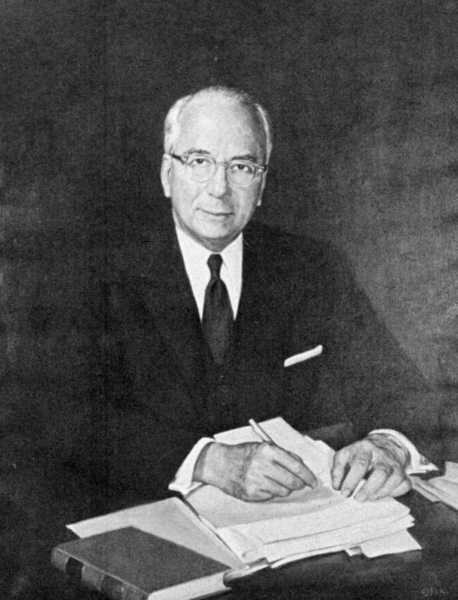A nuclear engineer reviews the blockbuster film:
The weakest part of the film was the portrayal of Oppenheimer’s nemesis, Lewis Strauss. Not the performance by Robert Downey Junior, which is fine enough, but the writing, which casts Strauss as the villain in a melodrama. In fact Strauss [left] was a complex and very accomplished person with a strong humanistic streak. He was one of the few major players to try to have the US take action to avert the Holocaust in the 1930s, and virtually alone among those near the top to advocate that the first atomic bomb used in the war not be dropped on a city, but in a demonstration to the Japanese on an uninhabited island instead. Later on he was one of the leaders pushing Eisenhower’s Atoms for Peace initiative. As noted, I think Truman was right and Strauss was wrong about the first use of the bomb, but my point is that Strauss was a much deeper person than the vicious police mind he is portrayed to be in the film.
Oppenheimer was certainly no communist spy. But he was very left-of-center, and had numerous social connections with people who, in the context of the Cold War, had to be regarded as security risks. Furthermore, his argument that if the US refrained from developing the hydrogen bomb the Soviets would hold back as well was clearly wishful thinking. In fact, the Soviets demonstrated the first practical hydrogen bomb before the United States did. In one scene of the movie, Oppenheimer corrects Strauss’ statement that Einstein is “the greatest scientist of our time.” No, says the arrogant Oppenheimer, he is “the greatest scientist of his time.” The same could be said of Oppenheimer in the 1950s. The right scientific leader for World War II — he was like a fish out of water during the Cold War. So long as the enemy was the Nazis, Oppenheimer was willing and able to go all the way. But he lacked the same moral clarity in his view of the Soviets. Strauss was a tough customer, and treated Oppenheimer brutally when he made the decision to dethrone him, but there were real policy issues at stake.
Read Full Article
Inset credit: National Oceanic
and Atmospheric Administration/Department of Commerce





